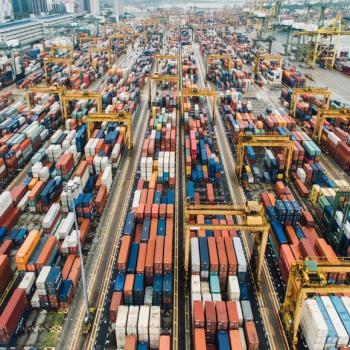 By Petar Nenadov, originally published at the KPN Resources blog
By Petar Nenadov, originally published at the KPN Resources blog
Several resources now exist that promote business as a means of alleviating poverty – “When Helping Hurts” by Steve Corbett and Brian Fikkert, “Toxic Charity” by Robert Lupton, and Poverty Cure by the Acton Institute, to name a few. Each resource acknowledges the usefulness of both enterprise and aid in addressing issues of poverty, but with a clear bias toward enterprise – and the resulting wealth creation – as the long-term solution. While aid is effective in emergencies, it is powerless to create sustainable wealth. This truth has profound implications for how churches should approach compassion ministries and how nations should approach global issues of poverty.
Africa is often used as an example of not only the limitations of aid, but also of aid’s detrimental impact on long-term progress. So how do you explain nations such as Saudi Arabia? Most Western nations engage with Saudi Arabia on the basis of enterprise, not aid, but even so, the majority of citizens in Saudi Arabia remain in poverty.
I posed this question to Dr. Peter Heslam, director of Transforming Business at Cambridge University, during one of his lectures at Acton University in June. He responded: “To understand Saudi Arabia, you must distinguish between wealth and capital. Capital is wealth exposed to risk. And the wealth of Saudi Arabia is controlled by a few, and not exposed to risk through credit.” This distinction provides great insight into why the faith and work conversation, a current buzz topic in evangelical Christianity, needs to include issues of economics.
It is not enough to know how to create wealth. It is also important to know how wealth works.
Why don’t we keep our money in mattresses or personal safes? Why do we make our money available to banks to lend to others or to municipalities and businesses to expand and develop? Because when the wealth of one person is made available to another through a loan, bond, or stock, it forces the type of relationships and controls necessary to ensure the flourishing of the entire community.
What if a banker is dishonest? What if a business makes a bad investment? These are legitimate risks, but they are better than the alternative. What if someone broke into your home and stole all your money? What if the toll worker could demand all of your money with a machine gun? By choosing to make our money available, exposing it to risk, we actually make it more secure.
When we realize that exposing wealth to risk through credit is necessary for communities and countries to flourish, we also recognize that economics cannot be divorced from the rule of law or the moral formation of people. How will exchanges of wealth through credit be enforced? And how are people formed to be true to their word?
Private enterprise, government policies, charitable foundations, lending institutions, and churches are all part of an economic whole. We need not choose between them, but should rather seek to understand how they best relate to one another.
Risk is a necessity – read Jesus’ parable of the talents in Matthew 24:14-30. It is also our opportunity.
Petar Nevadov is a pastor at Lakeside Christian Church in Akron, Ohio.












